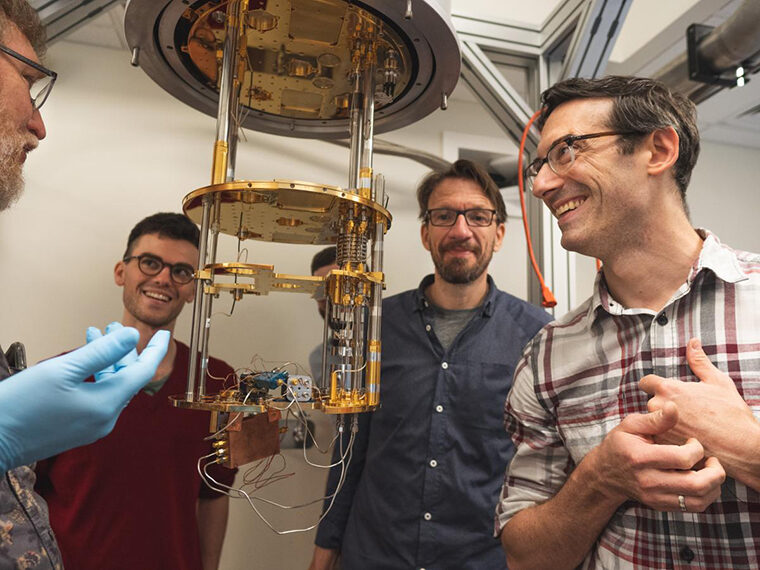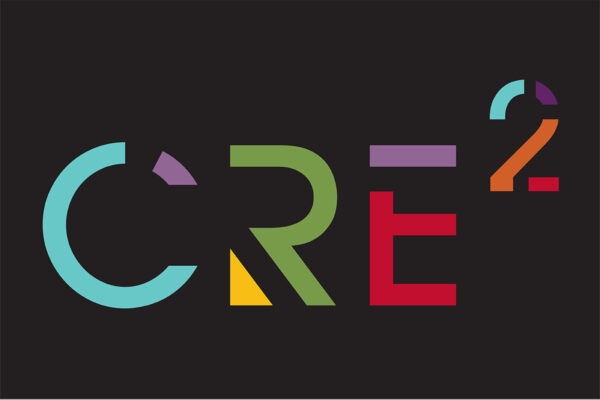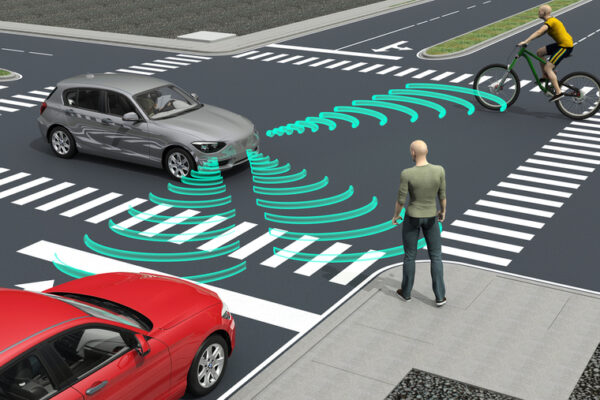What size of couch will fit in your living room? How many minutes does it take to get to work? As humans, we’re good at measuring the things we encounter in our everyday lives, and we’re familiar with the tools that help us do that. We are much less skilled at measuring some of the fundamental forces that underpin the universe — for example, the gravitational waves that are generated when black holes collide or the precise behaviors of electrons when chemical compounds bond together.
The keys to deciphering these phenomena are rooted in quantum mechanics. And channeling the immense potential of that field to better detect and understand the world around us is the goal of Washington University in St. Louis’ Center for Quantum Sensors.
The center is the brainchild of Jim Buckley, Erik Henriksen, Henric Krawczynski and Kater Murch, all of the Department of Physics in Arts & Sciences. With their collaborators, they aim to develop strategies and technologies that harness the principles of quantum mechanics — and the various tricks that field has unlocked — to measure the world around us as accurately as physically possible, reaching far beyond the limits of current tools. And their effort is timely: Congress recently passed the National Quantum Initiative Act, a federal program supporting the development of quantum technologies.
Launched last year, the center is a collaboration among Arts & Sciences researchers in physics, chemistry and earth and planetary sciences, along with the McKelvey School of Engineering and the School of Medicine. It serves as a hub for Washington University researchers who are developing cutting-edge sensors and for scientists who actively deploy those sensors in the field. Their expertise ranges from the theoretical physics of dark matter to remote sensing on Mars.
“The ultimate limit of how well you can measure something is set by the rules of quantum mechanics,” said Murch, associate professor of physics. “Our goal is not only to access those fundamental limits, but also to find clever strategies arising from quantum mechanics to make those limits even more sensitive. And, in doing so, you open incredible windows into the world, into space, new ways to listen to, for example, gravitational waves.”
Quantum computing, a field that is gaining momentum in both the physics department and the McKelvey School of Engineering, could play an important role in these efforts. “If harnessed in the right way, you can get that machinery to do something very sophisticated and pop out a simple answer for problems that, so far, seem unsolvable,” he said.
Read more in The Ampersand about how the center came about and ways that faculty from other disciplines as well as students will be involved in the work.



